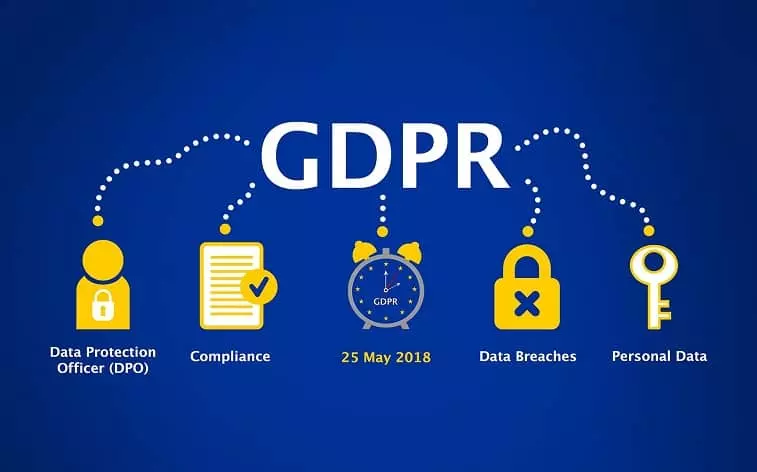Global trends in digital platform regulation are shaping how we interact online. We’re stepping into an era where the rules of the digital game are changing fast. Countries are rolling out new laws to protect your data and keep digital giants in check. I’ll walk you through these new norms. We’ll look at how data privacy laws are redefining platform governance, why tech companies must adapt to antitrust challenges, and what it means for content moderation. Plus, we’ll explore the tricky world of cross-border data flow and cybersecurity. Get ready to master the shifts in digital regulation!
The Impact of International Data Privacy Laws on Digital Platform Governance
Navigating GDPR Compliance Across Borders
We’re all online these days. And our data? It’s everywhere. But who keeps it safe? There’s a set of rules called GDPR. It’s like a digital bodyguard for our info in Europe. Even if a company is across the ocean, if they have our info, they must follow these rules. They need to keep it safe and tell us what they do with it. Or they face big fines.
The rules are tough. They make sure our data stays private, no matter where we are. Tech companies have to check their steps. They must be clear about what they do with our data. And if they mess up, they can’t hide it. They have to own up and fix it fast. We have the power to say, “Show me my data,” or even, “Delete it.” So even if a company is all the way in the US, if it handles data from folks in Europe, it has to play by these rules.
GDPR isn’t just some old law. It’s a trendsetter. Countries all over the world look at it and think, “We need something like that.” So, companies must be sharp. They must know all the different rules for each place they operate in. One slip, and it can cost millions. GDPR sets the pace, and the world is catching up.
The Role of Privacy by Design in Global Tech Policy
Now let’s talk tech building. Imagine making a building. But instead of adding smoke alarms after, you build them right in from the start. That’s Privacy by Design, but for tech. When someone makes an app or a platform, they make it safe for our data right from the get-go. They don’t wait for a problem to fix it. They make sure the problem won’t happen at all.
Every part of the tech—how it’s made, how it runs—protects our privacy. It’s not just an afterthought. It’s part of the plan. This way, when we use the app or the platform, our details are hidden away safe without us even asking. Companies must think about our privacy at every step. From the first idea to the final product.
Privacy by Design isn’t just a good idea. It’s becoming a rule in many places. It helps make sure that when new tech comes out, it’s ready for the world. And it’s not just about being safe. It’s about trust. When we trust an app with our selfies, our chats, our footsteps, we want to know they’ve got our back.
This rule is big. It goes beyond borders. It makes every part of the tech world step up. They have to think smart—about us, our privacy, and our trust. And that makes the internet a safer place for all of us, no matter where we click or scroll.
Tech Company Regulations and Antitrust Challenges
Addressing Big Tech Monopolies Through Antitrust Laws in Tech
Have you heard about big tech companies ruling the market? Some say they’re too powerful. There’s a big mix of thoughts about it. To fix this, there are rules called antitrust laws. They are here to make sure no one company takes over on its own. It stops firms from playing unfair and keeps choices open for all of us. It’s like a big game where everyone should play nice and by the rules.
So, what happens when companies don’t play fair? The law steps in. It checks if they’re too strong and hurting competition. If they are, it can break them up into smaller parts. Smaller pieces mean more players in the game, making it fair. That’s what the law aims for—a fair play area for everyone.
But it’s tricky with tech companies. These companies grow fast! They also change up how we live and work. And often, the laws have to run hard to keep up.
Balancing Digital Market Compliance with Innovation
Now let’s talk about keeping things in balance. It’s like walking a tightrope with a pole. On one end, you’ve got rules that protect us online. On the other, companies want to make cool new things. In the middle is the tightrope—you’ve got to go across without falling.
It means making sure companies follow the rules, the digital market compliance, and staying fair. And these rules must be clear so everyone knows them. At the same time, nobody wants rules so tough that they stop new ideas from happening. We want new apps, gadgets, and online tools. They make our days easier and extra fun. But we don’t want companies being unfair to win.
So, how can we get this balance right? It’s about making rules that are strong but also smart. They need to watch out for us, the users, while letting companies grow with their bright ideas. It’s not easy, but it’s super important. If we get it right, we all win—safe online spaces and cool stuff to use.
Governments and groups across the world are thinking hard about these things. They want to keep the digital world open and improve lives while making sure nobody gets hurt or tricked. It’s about having the freedom to choose and knowing your info is safe.
In our lives today, tech touches everything. And all of this—the rules, the big companies, your choices—affect you directly. When we use the web, we’re part of this big story. And knowing about these things means you can have a say on how the future looks. You can tell what’s fair, and you’ll want your voice heard in this big, busy digital world.
Online Platform Accountability and Content Moderation
Emerging Digital Policy and Content Moderation Standards
As a data privacy and compliance specialist, I delve into how laws shape tech. We see rules changing for online spaces – think digital platforms like social media. It’s a hot topic now. Why? People want safe online experiences. They don’t want harmful content popping up in their feeds. So, countries are crafting policies to make digital platforms clean up their act.
When tech giants do content moderation, they decide what stays online. It’s a big deal. These choices touch on free speech and safety. The question pops up: “How do they decide?” Initially, it’s simple: They use their rules and some smart tech. Yet, it’s complex too. It gets tangled with rights and wrongs — a tough balancing act.
New rules push for clear standards. They say, “Tell us how you pick what’s okay and what’s not.” The goal is to keep things fair. Fairness means everyone plays by the same rules, even huge tech companies.
The Digital Services Act and Platform Transparency Requirements
Now, let’s chat about the Digital Services Act (DSA). It’s fresh from the European Union. The DSA says to digital platforms, “Show us how you work.” The message is clear: Share your playbook on handling online stuff, especially risky content.
Why does this matter? Transparency builds trust. People and businesses can have faith in digital spaces when they know the rules. The DSA also says to platforms, “Be careful with user privacy.” That’s crucial. We all want to know our private stuff stays private.
This act is a game-changer. It’s making waves across the globe. Other places watch and learn. They might copy bits of the DSA. Why? It’s a solid attempt to balance safety, privacy, and free speech. These are values we all hold dear.
So, we’ve got these new standards. Content moderation has to be on point. It tells us what’s okay to share and what’s not. And the DSA says, “Be open about it.” This way, tech isn’t just a black box. We get a peek inside. It helps us get why that photo or post got the green or red light.
In my work, I keep a close eye on these changes. They shape how everyone — from big tech to startups — runs their online spots. Such norms are not just about what’s legal. They also guide what’s right. Good digital citizenship, you might call it. It’s about respect for the web we all share.
This trend isn’t stopping. We’re moving towards a world where online platforms must answer for their choices. It’s an exciting shift. It promises a safer, more honest digital world for you and me. And as we navigate this terrain, remember, we’re scripting the internet’s future together. Let’s make it a story worth telling.
Cross-Border Data Transfer and Cybersecurity Imperatives
Aligning International Cyber Security Laws with Data Sovereignty
We live in a world where our data crosses borders just by tapping “send”. Think about it. You send an email from New York to London, and in seconds it jumps the ocean. But here’s the catch: countries have their own rules on keeping data safe. So, how do businesses follow all these different rules?
International cyber security laws are like a giant puzzle. And every country has a piece of it. To work well, we need to fit these pieces together. Companies must understand these laws to move data without breaking rules. It’s all about data sovereignty. This means every country has the right to control the data under its laws, just like it does with its land and people.
Now, tech companies face a big task. They’ve got to protect data under each country’s laws where they work. They use encryption – which scrambles data so only the right person can read it – and other security to do this. It’s like locking a treasure chest, but only giving the key to the person who owns the treasure.
Protecting User Privacy in the Face of Global Internet Governance
Everyone wants their info kept private, right? Using the internet shouldn’t mean we lose that. Global internet governance steps in to help here. These are rules that tell companies how they should handle our data. They also help make sure we stay safe online.
User privacy protection is job number one for these rules. It’s all about making sure our data stays our own. Think of it as a privacy fence for your info. Strong rules make sure companies don’t snoop around your data without permission. And if they need to use it, they have to ask you first and use it the way they said they would.
Different parts of the world, like Europe, have strong laws to protect user privacy. GDPR compliance is a big deal in Europe. It tells companies exactly what they can and can’t do with people’s data. Businesses across the world that work with Europeans have to follow GDPR too. It’s like a club with strict rules – if you want to join and do business, you’ve got to play by their rules.
To keep up, we see new tech company regulations pop up. These are rules that make sure social media and other online platforms play fair. We’re talking about international data privacy laws, and even competition law in the digital economy. These make sure no single tech giant can push out the smaller guys, making it fair for everyone.
In the end, what’s important? That all of us can use the internet without worrying too much about our privacy. And that starts with strong cyber security laws and everybody playing by the rules. So next time you click ‘send’, remember, there’s a whole world of laws working to protect that message as it zips across the globe.
In this article, we dove into how data privacy laws shape the digital world. We covered GDPR rules and the need for privacy in tech policies. Global rules can be tough, but smart design helps us manage.
We also looked at big tech’s power and the antitrust laws that can challenge it. Keeping markets fair without holding back new ideas is a fine line to walk.
Then we discussed online platforms, who must now watch content closer than ever. New rules like the Digital Services Act push for more open practices.
Lastly, we talked about keeping data safe across borders. International cybersecurity laws have to work together to keep our info private.
Overall, balancing privacy, innovation, and accountability is key in digital governance. We must keep these in mind as tech keeps changing our world.
Q&A :
What is meant by digital platform regulation in a global context?
Digital platform regulation refers to the policies, laws, and rules that govern the operations of various online platforms at an international level. In the global context, these regulations aim to address issues such as data protection, privacy, market competition, misinformation, intellectual property rights, and the balance between free speech and harmful content. As digital platforms often operate across national boundaries, global trends in regulation seek to create standards and frameworks that multiple countries can adopt and enforce.
How are countries adapting to the challenges posed by digital platforms?
Countries around the world are adapting to the challenges posed by digital platforms by drafting and implementing a range of regulatory measures. These include the enforcement of antitrust laws to prevent monopolistic behaviors, the establishment of digital taxes for platform giants, and the creation of new guidelines for data protection such as the European Union’s General Data Protection Regulation (GDPR). Furthermore, some nations are focusing on content moderation policies to combat the spread of fake news and hate speech, while others are considering the implications of digital currencies and artificial intelligence.
What are the emerging global trends in digital platform regulation for 2023?
In 2023, emerging global trends in digital platform regulation include a heightened focus on consumer data rights and privacy, with more rigorous consent requirements for data collection and usage. There is also a trend towards greater collaboration between countries to tackle the borderless nature of digital platforms, leading to unified or reciprocal regulatory approaches. Another significant trend is the increased scrutiny over how algorithms influence public opinion and behavior, prompting governments to demand transparency and accountability from platform providers.
How do digital platform regulations impact businesses?
Digital platform regulations can have a profound impact on businesses by altering the ways in which they operate online. Regulations may require changes to data management practices, marketing strategies, content moderation, and user engagement methods. Compliance costs can also rise, affecting a business’s bottom line. However, on the positive side, well-crafted regulations can level the playing field by preventing anti-competitive practices and fostering trust among users, potentially leading to a healthier digital ecosystem for businesses to thrive in.
What role does international cooperation play in shaping digital platform regulation?
International cooperation is crucial for shaping effective digital platform regulation, as the digital economy is inherently global. Through agencies like the G7 and G20, as well as international organizations like the OECD, countries can share best practices, coordinate regulatory actions, and develop common standards. Cooperation helps to avoid a fragmented regulatory landscape that could hinder innovation and global commerce. It also ensures that digital platforms cannot easily circumvent regulations by operating in less stringent jurisdictions.



